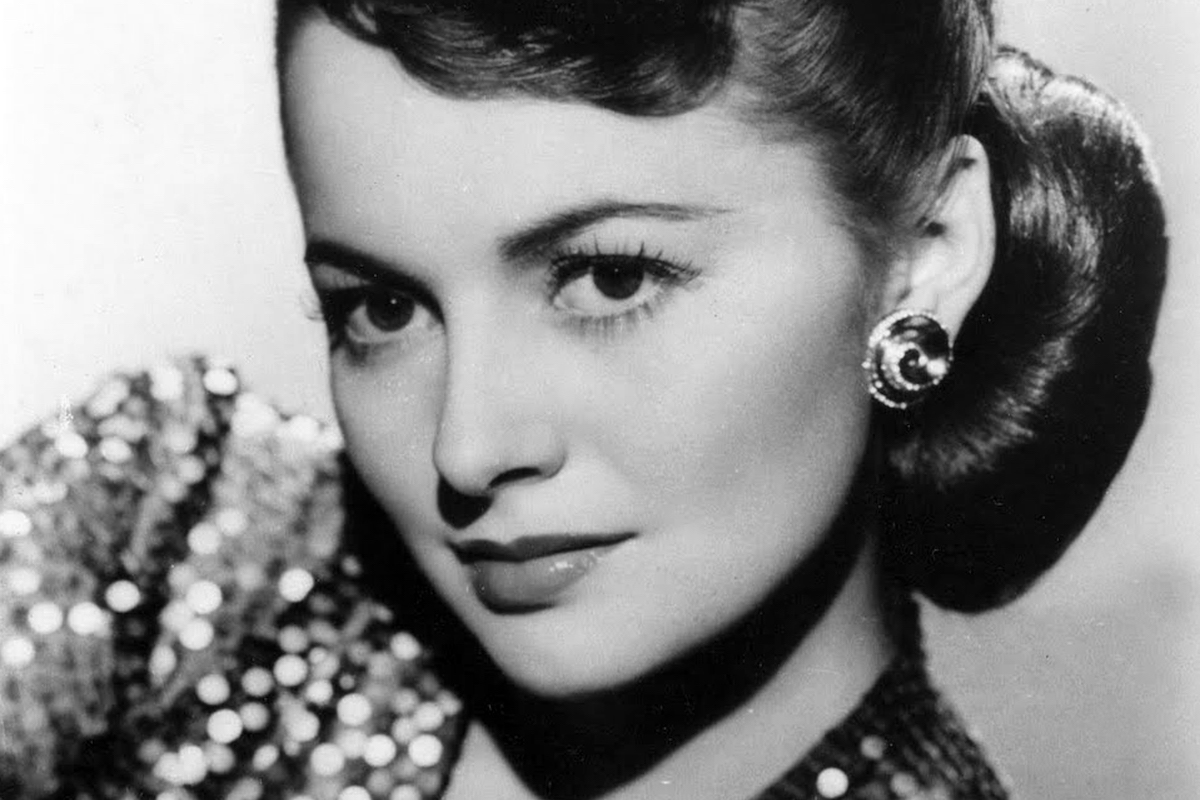Cinema
Thoughts on Longevity
Contemplation of such great age is intrinsically moving, perhaps because it releases us from the oppressive clamour of the moment.

Olivia de Havilland, the oldest surviving actress from Hollywood’s Golden Age, turned 104 last week. To live that long is in itself an act of generosity. She won Oscars for her leading roles in To Each His Own (1946), and William Wyler’s 1949 classic, The Heiress, in which she starred opposite Sir Ralph Richardson and Montgomery Clift. But she is probably best remembered for her role as Melanie Hamilton in Gone with the Wind—a film that just narrowly avoided cancellation, and now carries health warnings on most streaming services for its outdated depictions of race relations in the ante- and post-bellum South. Its sexual politics are also likely to wrinkle a forehead or two. De Havilland may outlive it yet.
Contemplation of such great age is intrinsically moving, perhaps because it releases us from the oppressive clamour of the moment. It restores our sense of time itself, and calms the shrill, neurotic demands of the 24-hour news cycle. “Man is the measure of all things,” said Protagoras, the pre-Socratic philosopher (though of course, he didn’t know he was pre-Socratic at the time). Whether he was right—and there were plenty in Athens who accused him of being one of those cultural relativist, neo-Marxist, Frankfurt school troublemaker types—the thought has survived over 2,000 years. It now has the burnish of antiquity, suggesting that perhaps longevity is itself a measure of wisdom.
Protagoras’s notion is central to “The Machine Stops,” a short dystopian science fiction story by E.M. Forster (dystopian certainly by the standards of Howards End and A Room with a View). It anticipates, with astonishing accuracy for someone writing before the birth of TV, both the pandemic lockdowns and our means of dealing with them, viz. Zoom. When the titular Machine which regulates life and ensures homeostasis does indeed stop, the protagonist has to leave his cell, to rediscover the truth of human nature which has been obscured by technological coddling. It’s a powerful reassertion of Protagoras’s message. Humans are the ultimate measure of all things, and a long human life remains a peculiarly meaningful measure of time.
Olivia de Havilland was born during the Great War on the first day of the Somme offensive. It was the bloodiest day in British military history—nearly 60,000 casualties, over a third of them fatalities. This is not to imply any association between de Havilland’s glamorous life and tragedy. De Havilland was obviously not the fruit of the Somme. She was born in Japan, for a start, though to English parents, and while the guns were loud enough to rattle Kentish windows, they would not have been heard in Tokyo. But her life, stretching like a fragile cobweb thread all the way back to an event that has receded from living memory, is a rare and precious thing connecting generations.
To see both these events—the anniversary of an historic inferno and the cheerful birthday celebration for a beloved star of a bygone age—side by side is an example of the sort of juxtaposition that only a poorly curated Twitter feed can provide. But it created a reaction in my head like that produced by the “dolly-zoom”—a cinematographic technique that produces a giddying, perspective-altering effect akin to vertigo, pioneered in Alfred Hitchcock’s film of the same name. A single lifetime stretching that far into past seems, if not the work of special effects, at least the Doctor Who writers’ room. It anchors us, in a way that elephants appear anchored and we, puny humans, often do not. I feel grateful to the very elderly, much as I do to those who keep AC Cobras and Morris Travellers on the road. Just to see aged faces, to be able to contemplate their life’s path somehow illuminates the past, revealing things that might otherwise become rumours and myth.

One can read about the Somme, of course, or watch the footage recently brought to life by Peter Jackson that made it all so much more real than the vaguely Chaplinesque newsreel of the time. But to be reminded that there is someone who can reach out in her mind and almost touch it… that is rather like getting an unexpected view of one’s childhood home from the deck of a boat, or the window of a plane.
Perhaps we should simply be allowed to forget the Somme, of course. But we would begin to lose our understanding, then, of the century which followed it. In his book Into the Silence, Wade Davis argues that the bloody Rubicon humanity crossed in the course of that war—in the course of that single offensive, even—is the key to understanding the psychology of a generation, and particularly those who were eager to risk their lives in scaling Everest in the British expeditions which followed so soon after it. It was certainly key to understanding the anxiety to maintain peace at all costs, for which we were to pay such a terrible price a few short years later.
The Somme was a singular catastrophe even by the standards of the Great War. It has become the byword for martial folly—the men walking, not charging, to their deaths; the almost imponderable misjudgements of the General Staff; the ceaseless pounding of the artillery, shredding the last wisps of sanity of officers and men, as they were fed into the meat grinder. The name itself meanwhile, is hauntingly poetic, and almost silent. An echo of somber, but also of nous sommes—we are, and then suddenly we are not. But written accounts of the battle, however eloquent, can feel as distant as Homer. To find that there is a human heart still beating on the face of the Earth, that began to pound in lockstep with those guns, is remarkable and strangely touching.
“The greatest glory of a building,” wrote John Ruskin, “is not in its stones nor in its gold. Its glory is in its Age and in that deep sense of voicefulness, of stern watching, of mysterious sympathy… which we feel in walls that have long been washed by the passing waves of humanity.” That voicefulness, and stern watching, often associated with churches and cathedrals, is also part of what I have missed about my favourite pubs during lockdown. These have been a lonely few months in more ways than one. Connecting with friends while sitting in one’s own rooms drinking decent wine is a great pleasure and consolation, of course. But the Internet is not an inn. And sharing an hour or two online is not the same as sharing ancient walls with old friends and with other drinkers past and present.
Perhaps these are intimations of mortality. At 55, I am not old. But I have begun to notice that scrolling to my date of birth in dropdown lists takes longer than it used to. It is hard to avoid the sense of pages being blown from the calendar, and to see more black and white newsreel—Beatlemania!—as I come to rest on 1965. Nevertheless, I will defend these thoughts from charges of solipsistic nostalgia. To draw nourishment from the fathomless well of human history is healthy and vital. The way the fibres knit together, the twitch of our collective muscle, is the source of our strength, as a species.
A single human lifetime can span more than can be easily imagined. Two or three such lifetimes and you are in a chain passing water from real history. Bertrand Russell knew Lennon and McCartney and informed many of their political views. Here he is, chatting in the 50s about memories of his grandfather, one time prime minister, who as a young man had met with—not seen, but actually met—Napoleon. Leaping across the abyss of that flickering monotone footage, he takes us back into the vivid world of colour, and of pageantry captured not on film but in oils.
Here you are in 2020 watching a 1952 interview with Russell, born in 1872, who talks about how his grandfather visited Napoleon on Elba in 1814.
— Tamás Görbe (@TamasGorbe) May 11, 2020
Puts human history in a different perspective. pic.twitter.com/A6VjLxfn5p
With a similar hop and a jump, this Oxford classicist reaches the funeral of George III—the man my father has yet to forgive for losing America:
Today is a good day, since it’s 200 yrs ago, to recall my father’s story that as a kid he spoke to an old man whose grandfather’s earliest memory had been of travelling with his mother in a stagecoach out of Wales as the bells tolled for the death of George III.
— Llewelyn Morgan (@llewelyn_morgan) January 29, 2020
Old age is a source of ambivalence in the modern world. A lot of contemporary discourse is concerned with various sources of inequality, whether those be racism, sexism, or foreign policy. But perhaps the most pernicious trend of the last 30 years or so has been the shift of wealth from the young to the old. This has been no-one’s fault—no bigotry is involved. It is just the tendency of appreciating assets, real estate especially, to accrue value faster than even a busy person can earn with his labour. But my suspicion is that this is driving as much of the current unrest as the stated grievances. So much seems stacked against the young at the moment. It cannot have escaped their notice that COVID-19, left to its own devices, would have acted at scale as a brutal leveller in this regard. Instead, the young have been asked to gamble their economic future in order to protect the elderly from losing at most a few late, compromised years of fiscally protected retirement. So, it is good, now more than ever, to also be reminded of the value that age can provide.
I wonder if this too underlies the disquiet I and many have felt about the recent mania for tearing down statues. Few would mourn the odd slaver, unaccountably still honoured in bronze in a city that looks very different to the one that erected him, let alone the one in which he practised his evil trade. But the fear is of zealotry, which can spread and consume like an uncontrolled fire. Being locked indoors and away from inglenook fireplaces and pewter tankards, one feels somewhat adrift, unanchored, and then comes the worrying sense that much of what we love, simply for being mellowed by time, is being summarily dismantled outside our windows while we press our faces to the glass. For many of us those statues carry no more hostile, triumphalist message than this: that we live—all of us—in time.
Our longevity is a gift to society, even if it can be a curse to the individual. Die a hero, or live long enough to see yourself labelled with a warning, that you may contain opinions and attitudes that modern day audiences find distressing. Still, on the whole, it is better than the alternative. The wind has blown, but you are not gone. And for that, Olivia de Havilland, I salute you. You have seen countless lives come and go. Nation states wink in and out of existence. You have seen an entire, brutal empire, rise between your place of birth and your mother country and fall away again into dust. You have seen off Scarlett and Rhett and Ashley. And still you are with us. Truly, such a long life is a gift bestowed upon us all. Thank you. And—belatedly—happy birthday.





